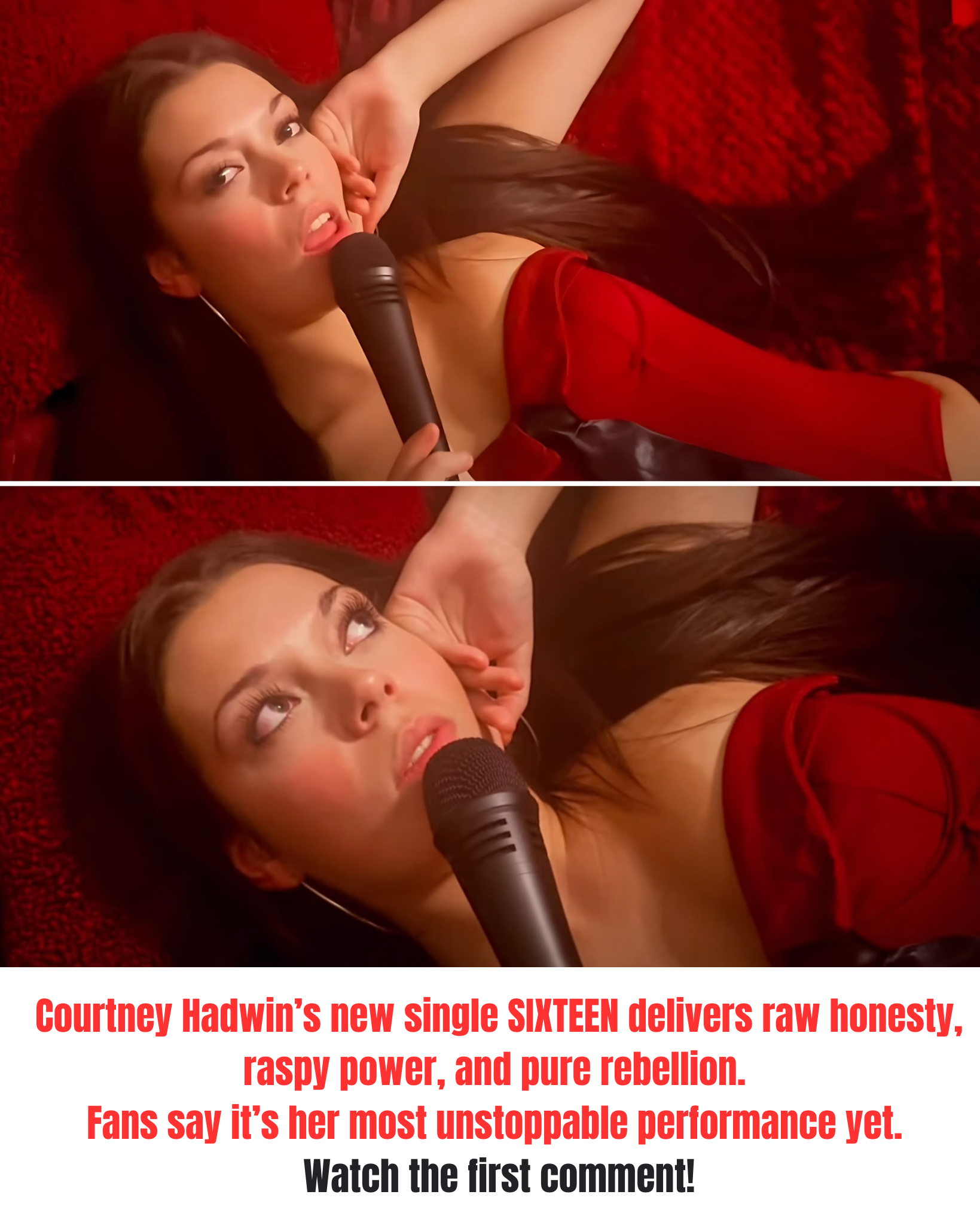Courtney Hadwin’s latest single, Sixteen, captures a moment in time that is as universal as it is fleeting. Known for her raspy, powerhouse voice and fearless delivery, Hadwin has always stood out for her ability to blend rawness with vulnerability. With this track, she takes on adolescence — not in a nostalgic, polished way, but in a form that feels lived-in and true.

From its opening notes, Sixteen establishes itself as both intimate and anthemic. The production leans into Hadwin’s blues-rock roots while incorporating touches of soul and modern pop. A steady guitar riff sets the foundation, with pulsing rhythms building the energy as the chorus bursts into a soaring refrain. Yet it is her vocal delivery that anchors the song. Hadwin’s rasp carries weight, turning lines about late nights, small-town dreams, and fragile confidence into something more than lyrics — they become experiences relived in real time.
The accompanying visualizer enhances the song’s message by keeping things simple. Presented with retro textures, flickering lights, and shifting colors, it avoids spectacle in favor of atmosphere. The choice mirrors the song’s theme: adolescence is often about intensity that feels larger than life, even when the world itself hasn’t changed. By stripping the visuals down, Hadwin places the focus squarely on the emotions in her voice. The effect is almost confessional, as though the listener is being invited into her headspace.

Lyrically, Sixteen explores the contradictions of youth. It celebrates freedom and discovery while acknowledging insecurity and the pressure of growing up. Lines such as “We were kings and queens of nowhere, chasing stars we couldn’t name” capture the restless ambition of being young — a time when everything feels possible, yet uncertain. This duality is what makes the song resonate across generations. Teenagers may see themselves reflected in it, while older listeners hear echoes of their own formative years.

Fan reactions underline this connection. Many have commented on how Hadwin seems to voice feelings they either remember vividly or still grapple with. Listeners describe feeling transported back to their own teenage years, with one writing, “Courtney doesn’t just perform, she lives through the music.” It’s this quality — the sense that her songs are more than performances — that has defined Hadwin’s rise from her breakout moment on America’s Got Talent to her development as a serious artist.
Sixteen also marks a step in Hadwin’s artistic evolution. Earlier singles leaned heavily on her ability to shock with raw energy. This track, by contrast, demonstrates greater control and nuance, without losing her trademark intensity. It shows an artist who is not content to rest on her past reputation but who continues to refine her craft and expand her sound.

In the end, Sixteen is more than a song about being a teenager. It is about the universal process of becoming — the mix of rebellion, longing, and self-discovery that defines not only adolescence but also the moments in life when we are pushed to grow. With it, Courtney Hadwin has delivered an anthem that is both deeply personal and widely relatable, proving once again her rare ability to connect through music.
